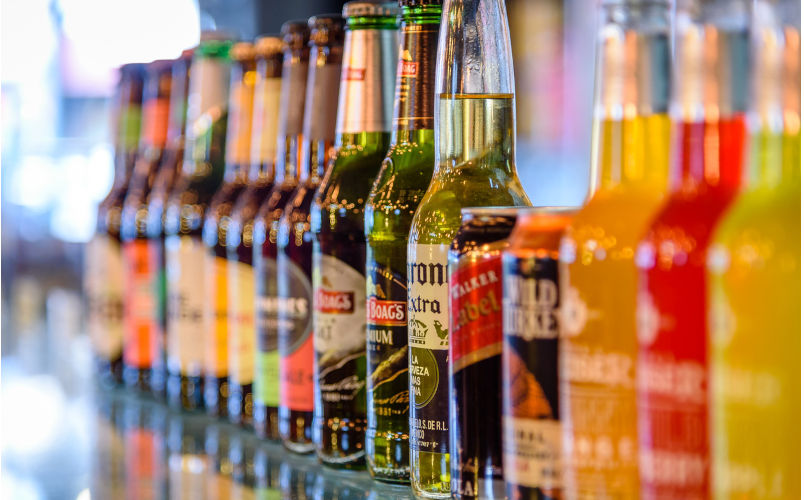It may be an inconvenient truth, but the fact is that, in terms of its harm, alcohol is by far Australia’s most dangerous drug.
In 2025 the situation with regard to alcohol abuse in Australia remains dire.
One disturbing trend is an exponential increase, among Australians aged 15 to 25, in out-of-control drinking, and especially in binge drinking among teenagers of both sexes, but especially among young girls.
The nightly news often features some personal and family tragedy that is the result of this national health problem.
Unfortunately, in our society there is still enormous social and peer-group pressure on those who wish to avoid alcohol. Not surprisingly, this pressure is extremely strong in relation to the young, for whom drinking — or, more accurately, drunkenness — is a rite of passage.
In a society like ours, with such an entrenched drinking culture and with such a politically powerful liquor industry, significant pressure is applied to those, young as well as old, who need to remain abstinent in order not to harm others and themselves, let alone to lead productive lives.
Regretfully, as a therapeutic aim or a way of life, abstinence is regarded with suspicion or misunderstanding. People who don’t drink alcohol are often dubbed wowsers, as if their abstinence was somehow un-Australian.
This is despite the fact that, over the long term, so-called “controlled drinking is a mirage for alcoholics.
To most people it is obvious, given the life-threatening, life-endangering consequences of alcoholism and the proven inability of alcoholics to control their drinking and other drug use, that for such people the goal of treatment should be total abstinence. Yet, for decades, an anti-abstinence orthodoxy has become entrenched in health departments and corrective services, with extremely unfortunate results.
What is particularly disturbing is that alcoholics and their families are given false hope that controlled drinking is a viable option. Is it even suggested that heroin and methamphetamine addicts try to learn to moderate or socially use heroin or ice!
The reality is that not drinking alcohol at all is still seen by many as rather weird, especially if one is young. Yet, in recent years, a number of teenage drinkers have done so much damage to themselves and others that they are seeking help to abstain from alcohol, including joining groups like Alcoholics Anonymous.
But because AA is an unpaid lay movement of men and women who have managed to get and remain sober and who wish to help other alcoholics, it is often undervalued by medical practitioners, psychologists and other health professionals.
Sometimes the public is puzzled about who is an alcoholic and who is not. May I suggest that if someone inquires, “Am I an alcoholic?” they ask themselves four questions: Is alcohol costing you more than money? Does your personality change for the worse after drinking? Do your relatives, friends, lovers and so on point out that you have a problem with alcohol? And finally, after drinking, do you sometimes have hours, or even days, that you cannot remember? This is commonly referred to as a blackout or alcoholic amnesia.
If a person answers yes to at least three of these questions, he or she is almost certainly an alcoholic. These are precisely the people for whom total abstinence is the only safe option.
Put simply: if alcoholics don’t pick up the first drink, they can’t get drunk. It’s so simple, but in our complicated world simplicity often isn’t fashionable.
The truth is that for an alcoholic, young or old, the best chance of recovery lies in not drinking alcohol at all, one day at a time.
And AA is by far the most successful agency is getting alcoholic men and women to stop drinking and to stay that way. So as I often say to alcoholics and their family and friends, why not avail yourself of the best?
AA has saved many lives and brought people back from the brink of destruction time and again. It has never been needed more than it is these days.
While some commentators have tunnel vision, focusing only on illegal drugs, our nation is reeling under the spell of a drug that has been a huge problem since the arrival of the First Fleet. This dangerous drug is alcohol and it is daily destroying communities, families and individual lives.
The first step in dealing with its dreadful damage is to wake up to the magnitude of the problem posed by alcohol in Australia.

Ross Fitzgerald
Ross Fitzgerald AM is Emeritus Professor of History & Politics at Griffith University. His most recent books are a memoir, Fifty Years Sober: An Alcoholic’s Journey, and the latest Grafton Everest political satire, co-authored with Ian McFadyen, Pandemonium, both published by Hybrid in Melbourne, and available online from Amazon and Booktopia.
